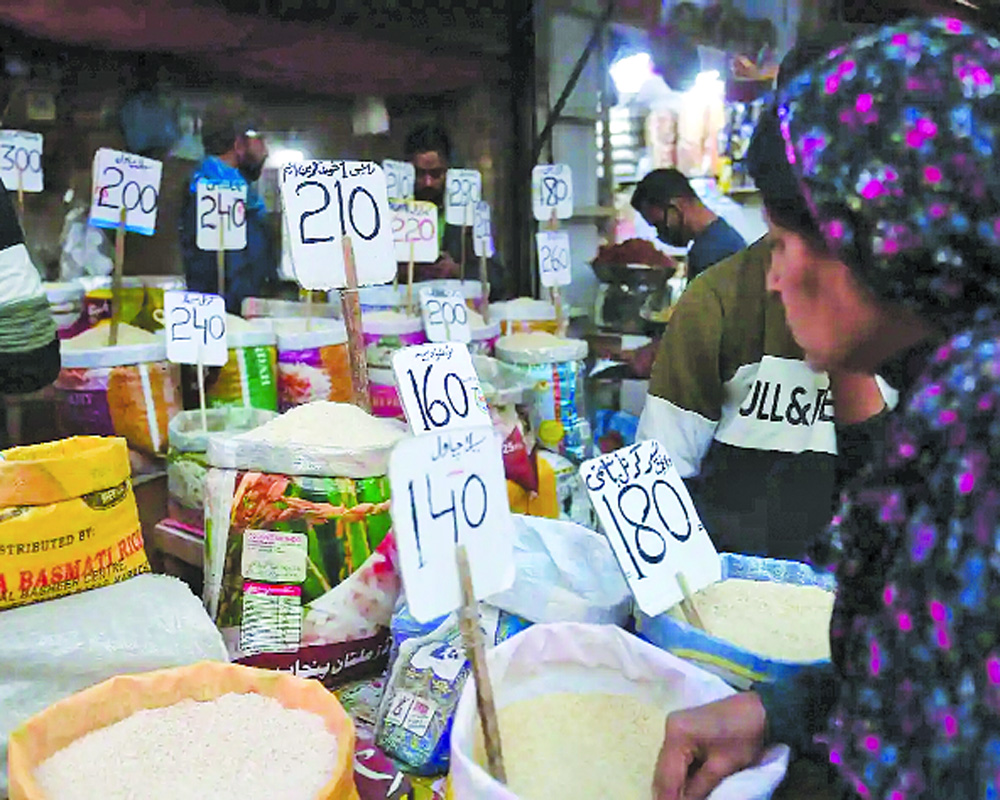Pakistan did not invest in its economic development; it focused on geopolitics and war-mongering which has not paid off
National dailies have reported that the Hindu community in Sind (Pakistan) are going to organise rallies that would converge on the Sind Assembly building by the end of the month. The objective is to protest against the rising incidence of forced religious conversions, abductions and child marriages of Hindus. The umbrella organisation under whose auspices this protest rally is to be held in the Darawer Ittehad, whose leader is Faqir Shiva Kuchi. That such protest and rallies have to be held clearly show that the Pakistanis have not yet learnt their lesson even after the acute economic crisis they are undergoing. Years ago, they could have discovered that landless they changed their ways, they would be headed towards such a crisis.
If only Pakistan had paid heed to sound common sense, on which there is never any dearth in the form of theses, literature and articles, they would perhaps have managed to escape the grip of the crisis they are facing today. Of all people, Qaid-e-Azam Jinnah would have known this the best; in his defence, one could say that he was sick when independence came in 1947 and died in a year’s time. Otherwise, on the aside, readers may certainly be surprised to discover that the blood of business flowed in his veins. His grandfather was Premji Meghji Thakkar, a Halai Lohana. He was nothing if not a businessman. Premjibhai found trading in fish lucrative and gave up Hinduism to convert to the Ismaili Khoja sect of Islam since the Lohanas were prejudiced against fish. Not an inconsiderable proportion of Halai Lohanas in Saurashtra converted to Islam. Similarly, Kutchi Lohanas converted to the Sunni sect of Islam; today, they are known as Memons, who are Sunni. A significant number of Brahmins of north Gujarat, centred around Siddhur became converts to Islam and are known as Bohras. They too developed a business aptitude. Many among these three communities migrated to Pakistan. Uncannily, 16 of the 22 big business families of Pakistan in Field Marshal Ayub Khan’s time were from these three communities. Arguably, this is one clue that a mainstream Muslim is not a natural businessman.
In the subcontinent, Muslim wealth was more in the land much less in business for the same reason. But not many Muslims notice this lacuna, except the likes of Prof. Timur Koran, an American scholar of Turkish origin. But before we come to him and his explanations, one factor of taqlid (orthodoxy) and its associated effects needs to be factored in. Education was not sufficiently encouraged in the community and certainly not among its womenfolk. An uneducated mother is often unlikely to realize the value of education. And a less educated society is unlikely to appreciate the value of economic education. This, in turn, causes a relative lack of awareness of the importance of business and industry.
Prof. Timur Kuran, a scholar of Turkish origin and professor of economics and political science at Duke University, in his book The Long Divergence: How Islamic Law Held Back the Middle East, tells us that in the year 1000, the economy of the Middle East was at least as advanced as that of Europe. But by 1800, the region had fallen dramatically behind in living standards, technology, and economic institutions. In short, the Middle East had failed to modernize economically as the West surged ahead. Prof. Kuran cites, the factors of frozen waqf assets which carry prohibitions of any change in their inheritance, a dominant medieval legal system, the failure to surmount weaknesses and transformations that were happening elsewhere and of course, the mechanisms that fuelled the ascent of the West, as among the chief reasons that kept the Middle East in a state of political and economic backwardness, and still continue to do so, the region’s oil wealth notwithstanding, as its flourishing was made possible only with Western technological and managerial assistance. Prof. Kuran’s analysis concludes that several self-enforcing elements of Islamic law-contracting provisions, inheritance system, and marriage regulations—jointly contributed to the stagnation of the Middle East’s commercial infrastructure.
Pakistani physicist Pervez Hoodbhoy in his article in Physics Today, published in 2007, laid out the stark reality of education, particularly science education in the world of his faith. Islamic countries (statistics of that year, though things are qualitatively no better today) have nine scientists, engineers, and technicians per thousand people, compared with a world average of forty-one. Of the (roughly) 1.6 billion Muslims in the world, only two scientists have won Nobel Prizes in science (one for physics in 1979, the other for chemistry in 1999). Let us also take Pakistan’s case, which is in dire economic straits today. From 1951 to the 2020s, the country received over $80 billion from the United States alone, with aid from other countries/agencies in the West and its Middle Eastern patrons being excluded. One would naturally ask: where did all that aid disappear, given the parlous condition in which Pakistan today is?
One of the most far-reaching consequences of Pakistan’s wars with India in its futile quest to wrest Kashmir has been the wide-scale economic slowdown in that country. The 1965 war ended whatever economic growth Pakistan had experienced during the early 60s. Its defence spending has risen to nearly 80% of its GDP, leaving nothing for development.
(The writer is a well-known columnist, an author and a former member of the Rajya Sabha. The views expressed are personal)


























